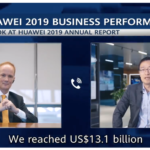Jeffrey Towson outlines three powerful playbooks for dominating digital markets, including blitzscaling and harnessing digital superpowers. His analysis of Alibaba’s success offers actionable insights for businesses navigating rapid digital transformation strategy. As a seasoned digital strategy consultant Jeffrey Towson provides a clear roadmap for competitive advantage in the digital age.





